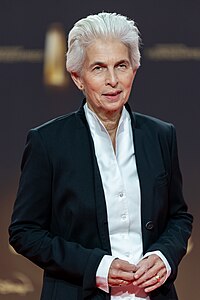| ||||||||||||||||||||||||||||||||||||||||||||||||||||||||||||||||||||||||||||||||||||||||
All 720 seats to the European Parliament[a] 361 seats needed for a majority | ||||||||||||||||||||||||||||||||||||||||||||||||||||||||||||||||||||||||||||||||||||||||
|---|---|---|---|---|---|---|---|---|---|---|---|---|---|---|---|---|---|---|---|---|---|---|---|---|---|---|---|---|---|---|---|---|---|---|---|---|---|---|---|---|---|---|---|---|---|---|---|---|---|---|---|---|---|---|---|---|---|---|---|---|---|---|---|---|---|---|---|---|---|---|---|---|---|---|---|---|---|---|---|---|---|---|---|---|---|---|---|---|
| Opinion polls | ||||||||||||||||||||||||||||||||||||||||||||||||||||||||||||||||||||||||||||||||||||||||
| Turnout | (50.74%[1] | |||||||||||||||||||||||||||||||||||||||||||||||||||||||||||||||||||||||||||||||||||||||
| ||||||||||||||||||||||||||||||||||||||||||||||||||||||||||||||||||||||||||||||||||||||||
 Results by member state, shaded by EP group popular vote winner | ||||||||||||||||||||||||||||||||||||||||||||||||||||||||||||||||||||||||||||||||||||||||
| ||||||||||||||||||||||||||||||||||||||||||||||||||||||||||||||||||||||||||||||||||||||||
| This article is part of a series on |
 |
|---|
|
|
The 2024 European Parliament election was held in the European Union (EU) between 6 and 9 June 2024.[4] It was the tenth parliamentary election since the first direct elections in 1979, and the first European Parliament election after Brexit.[5][6] A total of 720 Members of the European Parliament (MEPs) were elected to represent more than 450 million people from 27 member states.[a] This election also coincided with a number of other elections in some European Union member states.
The European People's Party led by Ursula von der Leyen won the most seats in the European Parliament. The pro-EU centrist, liberal, social democrat and environmentalist parties suffered losses, while anti-EU right-wing populist parties made gains. The right-wing European Conservatives and Reformists group overtook the centrist Renew Europe group to win the fourth most seats, while another right-wing group, Patriots for Europe, the successor of Identity and Democracy, won the third most seats. In addition, a far-right group, Europe of Sovereign Nations, was formed, becoming the smallest group in the Parliament. In total, 187 MEPS (25% of Parliament) belonged to the hard-right which is more members than ever before in history.[7]
On 18 July 2024, Ursula von der Leyen was re-elected President of the European Commission in a secret ballot by the European Parliament.[8]
Cite error: There are <ref group=lower-alpha> tags or {{efn}} templates on this page, but the references will not show without a {{reflist|group=lower-alpha}} template or {{notelist}} template (see the help page).
- ^ "Turnout by year; 2024 European election results; European Parliament". election-results.eu. Archived from the original on 23 July 2019. Retrieved 11 June 2024.
- ^ "European Parliament 2024-2029 | Provisional results". election-results.eu. Archived from the original on 18 June 2024. Retrieved 15 June 2024.
- ^ Cite error: The named reference
EE-EU24was invoked but never defined (see the help page). - ^ "Council confirms 6 to 9 June 2024 as dates for next European Parliament elections". www.consilium.europa.eu. 22 May 2023. Archived from the original on 24 July 2023. Retrieved 24 May 2023.
- ^ "EUR-Lex - 12007L/TXT - EN - EUR-Lex". eur-lex.europa.eu. Archived from the original on 27 September 2023. Retrieved 15 July 2021.
- ^ "Elections". European Parliament. Archived from the original on 28 June 2018. Retrieved 15 July 2021.
- ^ Ella Joyner (11 June 2024). "Europe's far right won ground in the EU elections. Can they unite to wield power?". The AP.
- ^ Cite error: The named reference
re-electionwas invoked but never defined (see the help page).









